"Why I Hate Living In the US" — Woman Says Restaurant Added "Employee Health Insurance Fee" to Bill
Updated May 3 2023, 9:11 a.m. ET

TikToker @killjill___ went viral on the popular social media platform after highlighting a 3.5 percent service charge for employee benefits she saw on her table's receipt after dining at an Etta restaurant. She says the charge highlights the problems with America's healthcare system and her comments sparked a viral debate.
"I recently found another example of why I hate living in the US. I went to brunch with a group of people a little while ago and when the waitress brought out the tab I noticed this 3.5 percent for staff benefits and so I asked our waitress, 'I'm like what, what is this staff benefits charge?'"
The TikToker said the server explained, "'Yeah, um that's so that we can have healthcare,'" and the diner launched into a rant on her channel. "You're telling me every two weeks it's money taken out of my check to pay for my health insurance, just so that when I go to the doctor I still gotta pay them more money to treat me and then pay more money to get my meds from the pharmacy, and now companies are allowed to just put the burden of paying for their employees healthcare on customers?"
The post touches on a huge issue Americans have had with federal legislation pertaining to healthcare. A number of notable politicians, including current Vice President Kamala Harris, have flip-flopped on the issue of a single-payer healthcare system for U.S. citizens.
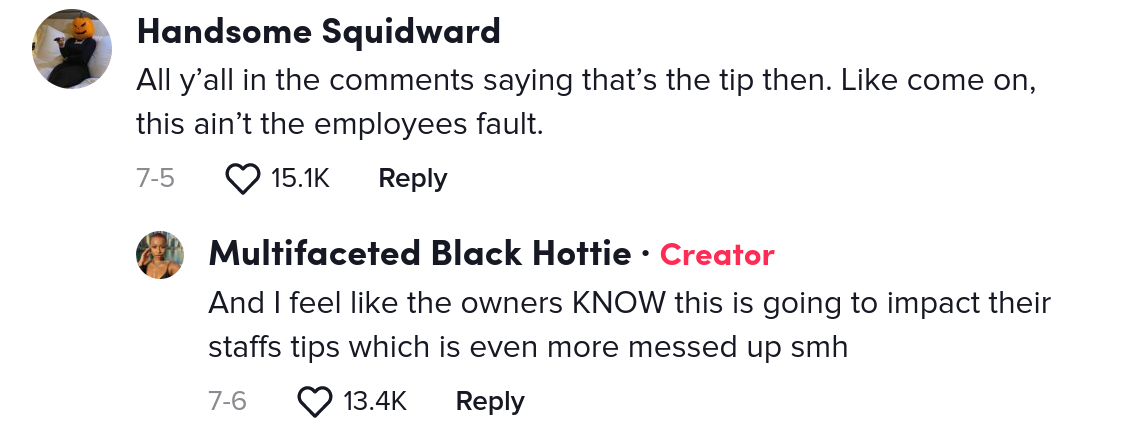
A single-payer healthcare system is the most commonly proposed solution to the coverage quagmire that the US is currently facing when it comes to looking after the well-being of its taxpayers. All it means is that a single entity, whether it's a private or government entity, processes all of these healthcare costs.
This slightly differs from universal healthcare, which means that both public and private companies help to foot the bill of healthcare for folks; the U.K. provides universal coverage for its people, and according to CEO World, ranks 10th when it comes to providing medical service. South Korea, which the outlet says has the best healthcare in the world, is also universal. Several other countries that top the list have adopted either universal or single-payer systems.
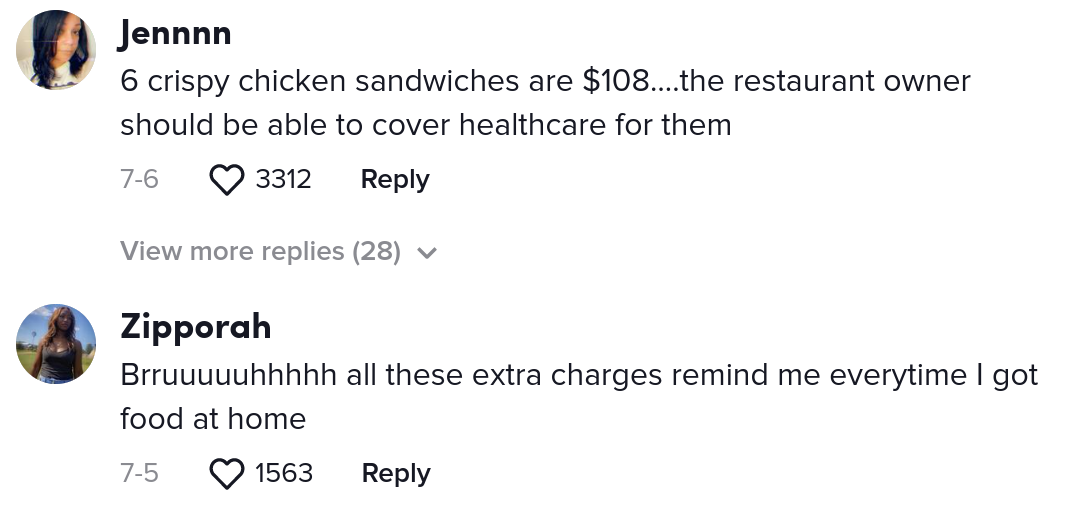
The US, by comparison, ranks 30th on the same list, despite the fact Americans pay the "highest per capita" according to PGPF and Health System Tracker.
This would seem to deflate the argument that competition between insurance companies results in better coverage and better health options for people who are being serviced in America's hospitals and clinics.
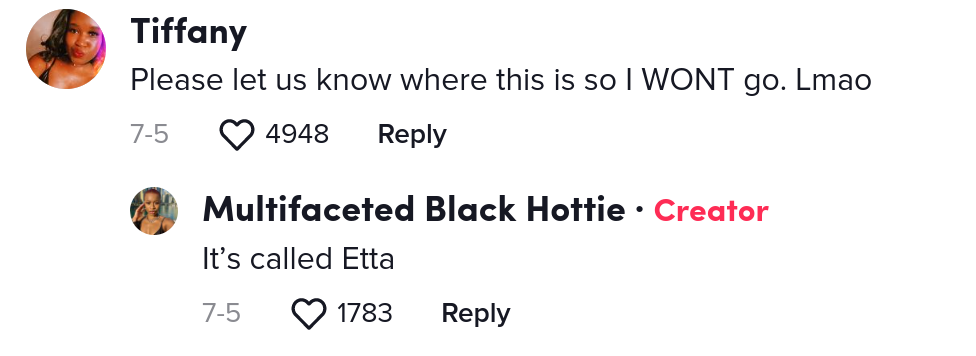
Many have attributed these failings to healthcare lobbying in America, which has seen massive political contributions from both pharmaceutical companies and other businesses in the health sector to candidates. For instance, in the lead up to the 2016 election between Hillary Clinton and Donald Trump, each of them received a $26.4 million and $5.8 million donation from healthcare companies respectively.
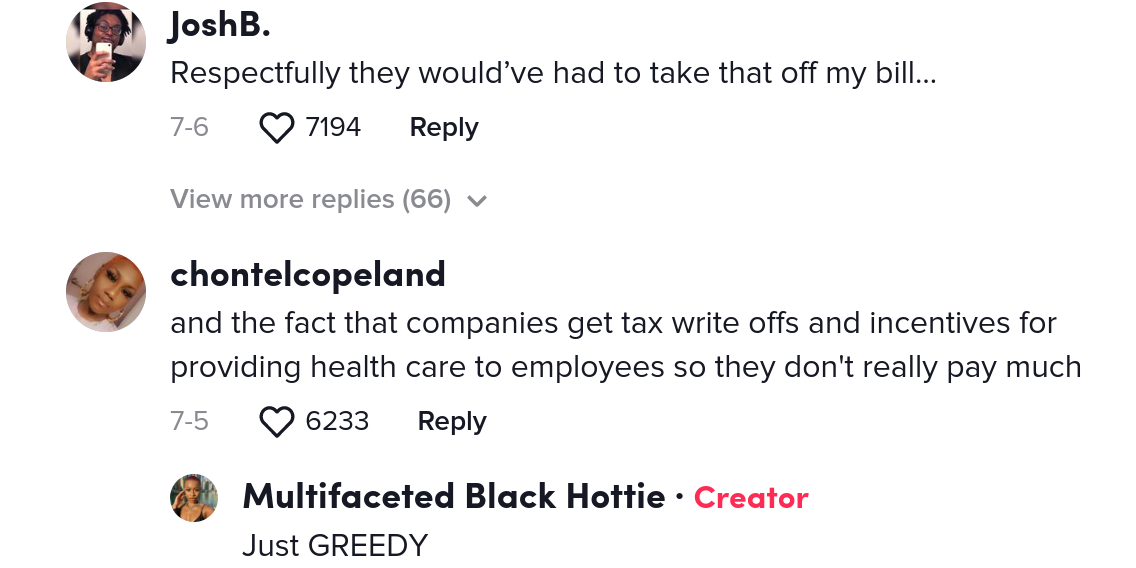
Corporate lobbying has long been criticized in the U.S., as it leads politicians to enact laws that benefit business interests rather than the interests of the constituents who elected them.
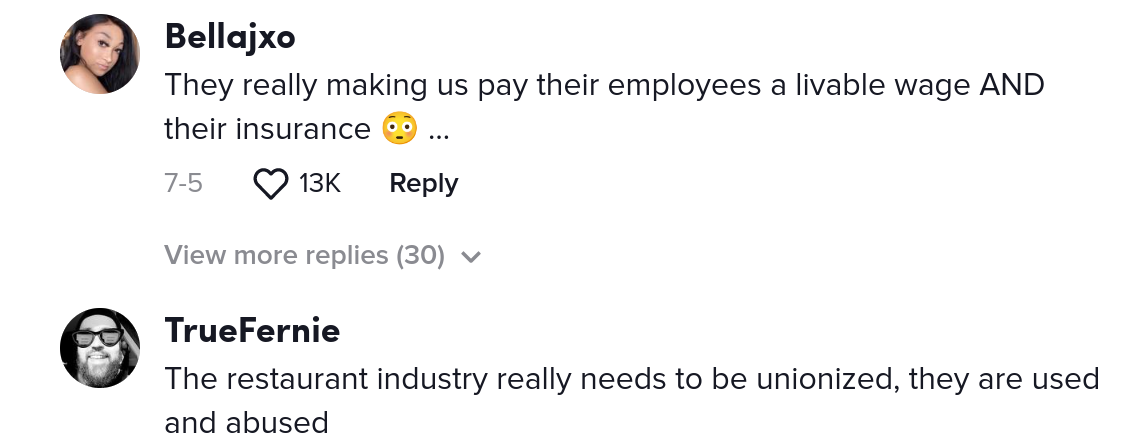
Which is the basis of @killjill___'s argument: Americans not only get their salaries docked for healthcare premiums, but that they're also forced to pay copays and deductibles out of their own pockets whenever they need to receive treatment. Now, on top of that, in some instances they're also paying for other folks' healthcare when they go out to eat.
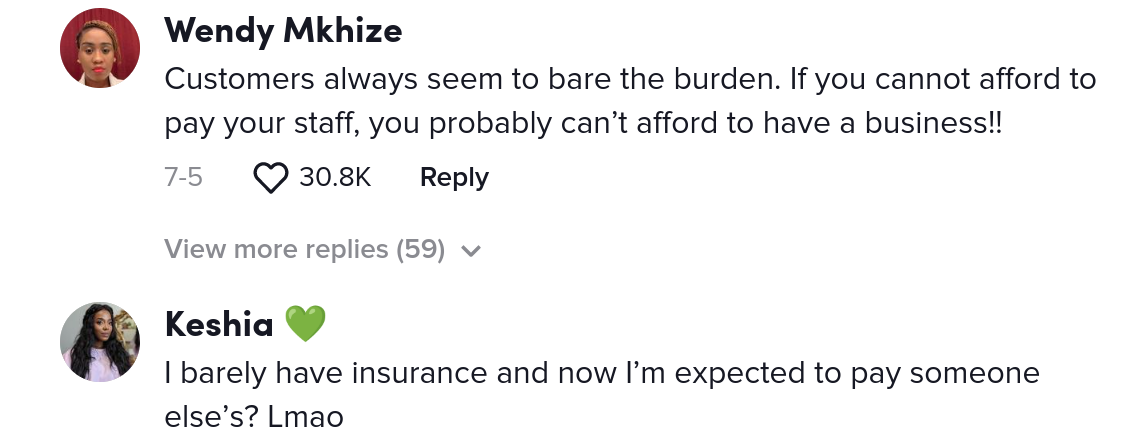
Some TikTokers who saw the video said that they would consider the 3.5 percent surcharge as part of the employees' tip, while others felt the practice was just another condemnation of the United States' convoluted, overpriced, and low-quality healthcare system.
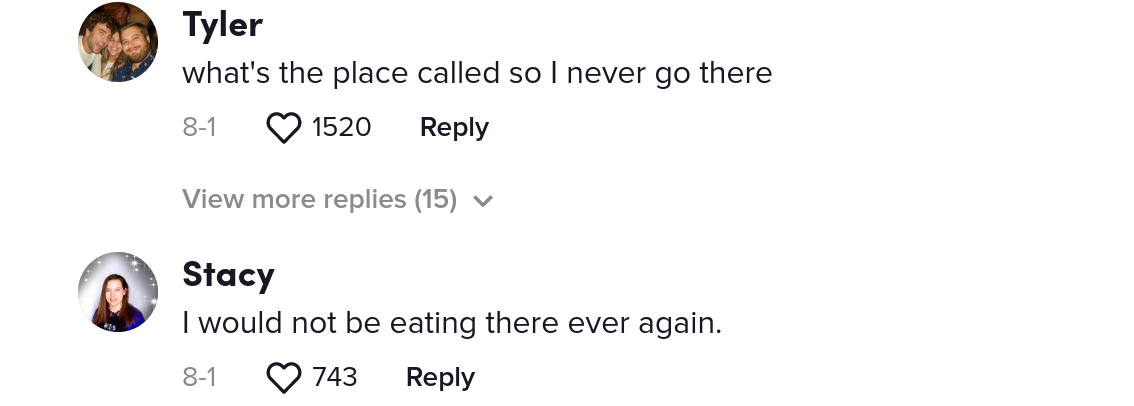
Other commenters requested to know the name and location of the restaurant so they could avoid going there altogether. How do you feel about this practice? Would you be willing to fork over an additional 3.5 percent on your bill to ensure employees have health benefits?